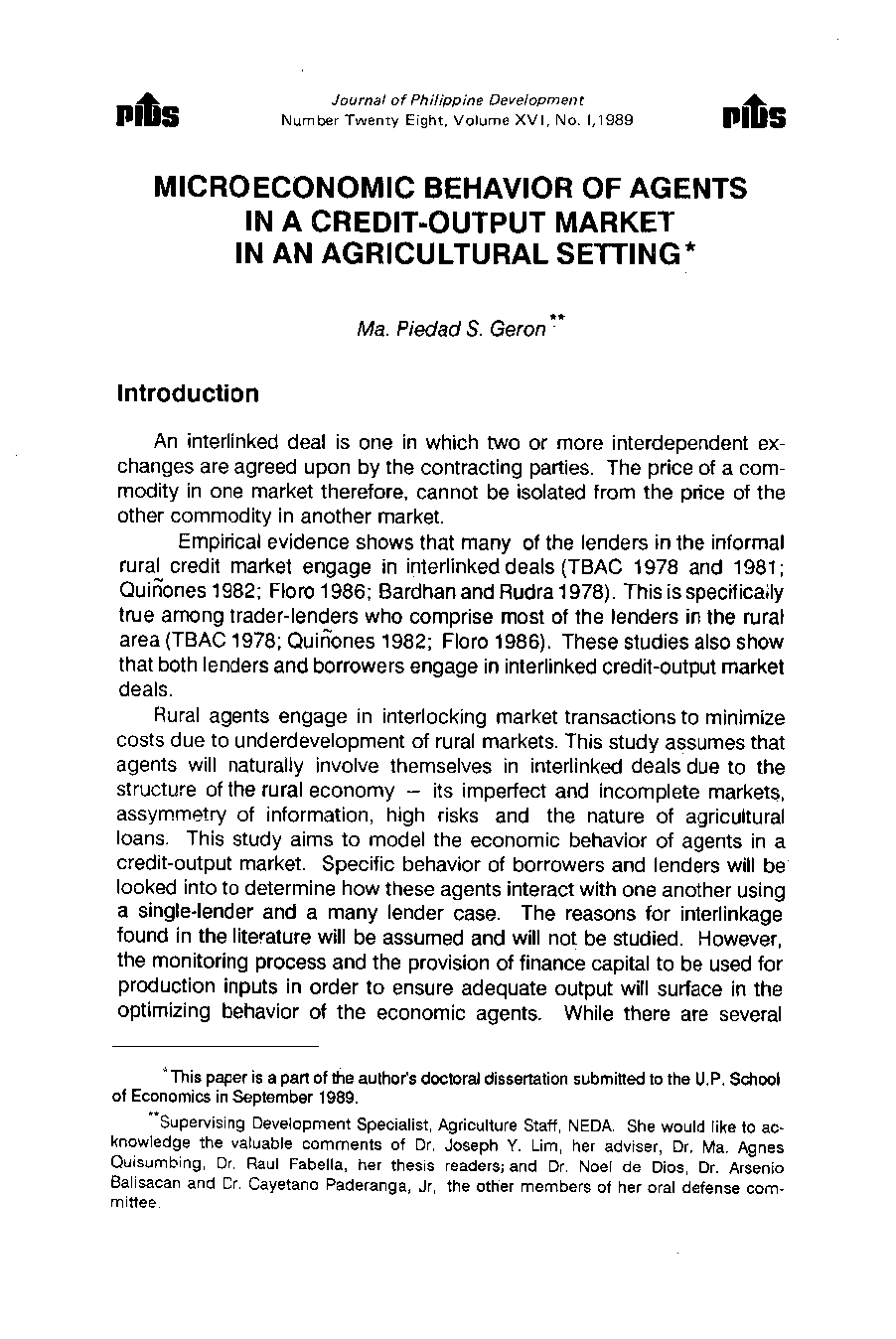Abstract
This issue examines the complexities of rural financial markets in the Philippines, highlighting the challenges faced by farmers, small entrepreneurs, and financial institutions. It explores market interlinkages, transaction costs, fund transfers, deposit mobilization, and access to financial services. A study on interlocking credit-output transactions models the economic behavior of rural agents, revealing the role of informal lenders in high-cost, low-income areas. Another paper assesses the impact of government-led financial interventions, emphasizing the need to account for banks’ transaction costs when designing rural financing policies. The structure of rural bank fund transfers is also analyzed, with insights into the factors influencing fund flows and their effects on savings mobilization. An article documents rural deposit mobilization efforts and evaluates the rural economy’s potential to support savings growth amid attempts to reduce urban financial bias. A discussion on the asymmetry of information in rural financial markets highlights how interlinking transactions between banks and self-help groups enhance access to formal credit.
Articles
SHARE
